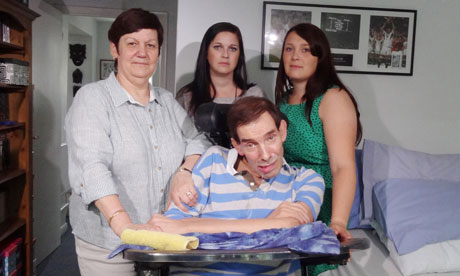Assisted dying: the harm in helping
Making assisted dying legal would alter the way society weighs the value of human life forever

It is often said, on seeing someone suffer a long and painful illness, that we would not let an animal suffer in this way. But as terrible as human suffering can be, there is of course no meaningful comparison to be drawn between the morality of ending the lives of animals and people except perhaps for this: how relatively easy it is for us to convince ourselves that we are doing the right thing. That matters in the debate about assisted suicide as well as euthanasia.
In my time as a doctor, I cared for many people who were dying. It was not uncommon, during a degenerative illness or cancer, for someone to ask me to help them to end their lives. Depression and hopelessness are a normal part of coming to terms with dying or a debilitating illness. During that time most people would have been able to weigh up their choices and have the capacity to decide whether they wanted to end their lives. But I also witnessed most of those same people come through the depression to reach a kind of peace before they died. Had it been easy and painless to take their own lives, how many would have been denied the chance to come through a sometimes lengthy adjustment?It isn't just the religious lobby that is opposed to a change in the law to allow assisted suicide. I have no faith banner to raise, and as a former doctor I know there are conditions for which I might at some point wish to end my life. Despite this, I don't believe I should have a right to make a doctor complicit in that decision.
People with capacity should have a right to make decisions for themselves – even if we don't agree with them, except where those decisions harm others. Assisted suicide does harm others: it harms the doctors who take on the responsibility for killing their patients. There is a vast difference between the moral responsibility in doctors withholding treatment that will end life and actively prescribing with the primary intent to ensure death. Failed attempts and the methods used may be distressing, but that does not justify the right to a clinically delivered death, which would fundamentally change the relationship between doctors and their patients and threaten to change the way society weighs the value of human life.
If society normalises such decisions about life and death, how easy would it be to slide from believing it acceptable to allow doctors to prescribe lethal cocktails for their patients in exceptional circumstances to feeling it strange or even immoral that such patients be allowed to live? There is also an unacceptable risk that a right to die could lead to the seriously ill or severely disabled feeling that they had a "duty" to die rather than burden their family or carers.
I know that even with the very best care in a hospice, the final weeks or months for some conditions can be distressing and painful. For that reason we should make it more straightforward for people and those they entrust to make decisions on their behalf, so that they are able to refuse active, life-prolonging interventions. We could also do much more to relieve distress by continuing to improve the network of palliative care teams delivering care and support closer to home. The current guidelines set out by Keir Starmer regarding the prosecution of those who assist others to take their own lives are humane and sensible; we should keep them.
And as for my faithful old friend; as I tearfully ushered the vet into the sitting room, my dog stirred, wagged her tail and trotted into the kitchen to take her first drink in days. She has now recovered. Please do not think I am suggesting any moral equivalence or trivialising but this is the final danger: doctors do not always get it right.
